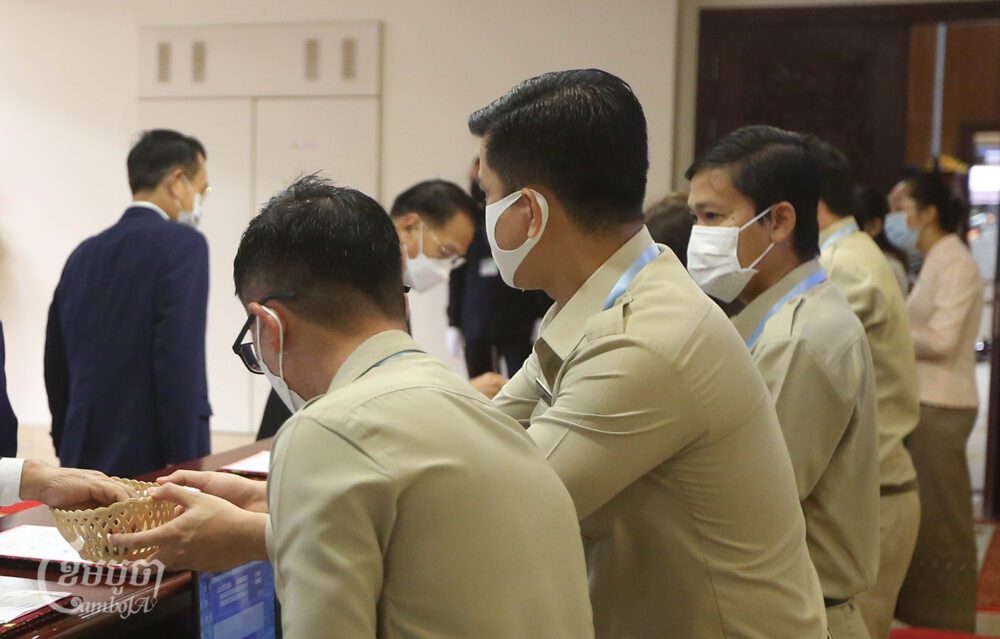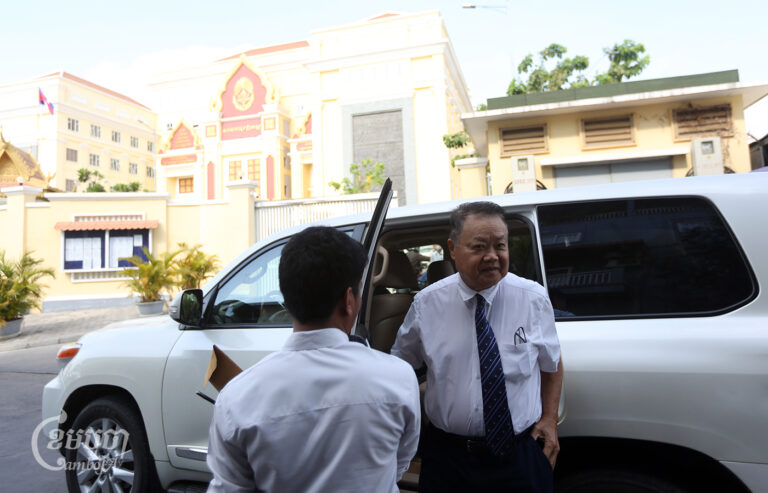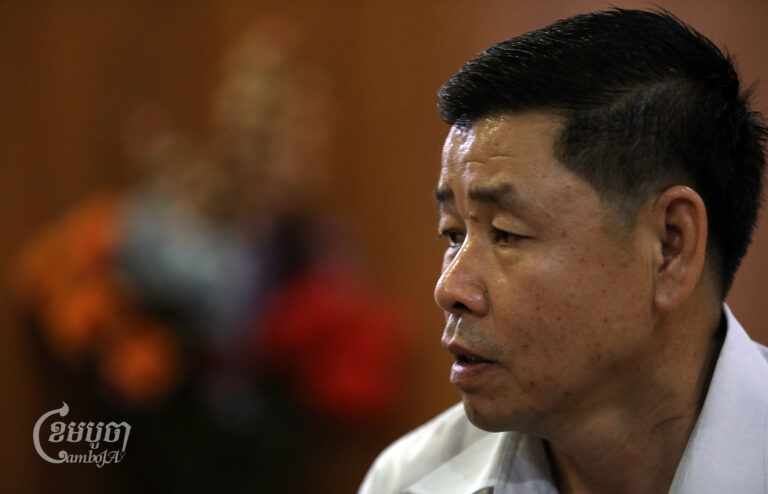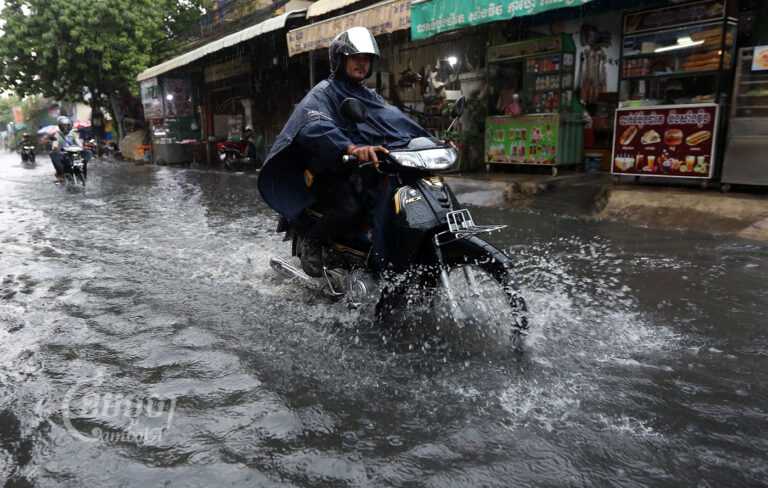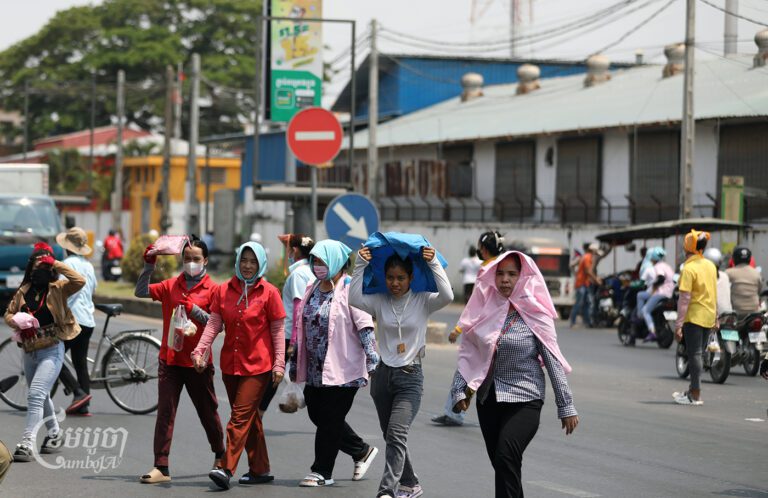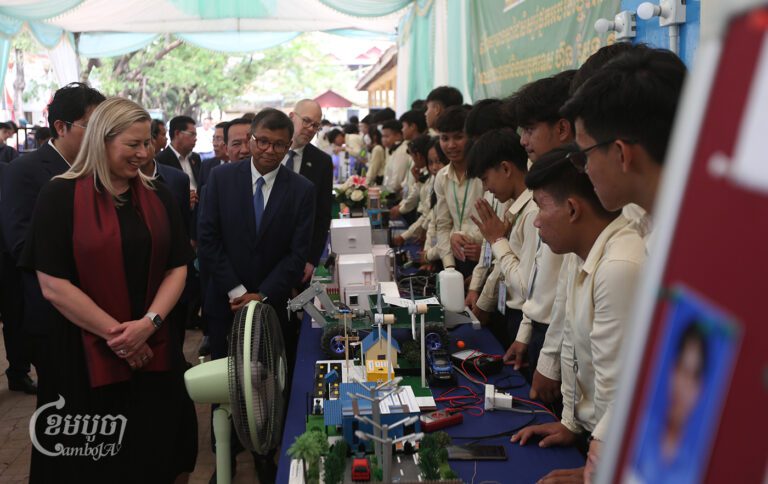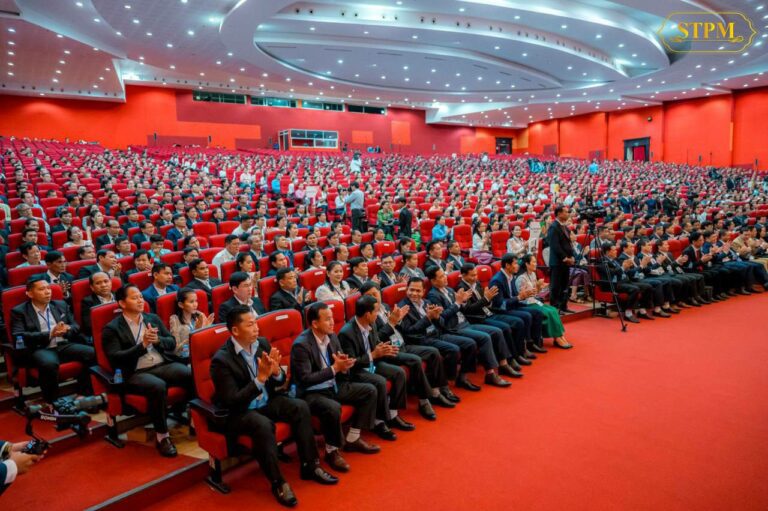A new report from the World Bank found that an increase in Cambodia’s government spending, fueled in part by across-the-board salary increases, has not resulted in better outcomes in the country. The government could use public spending on social services more effectively to improve health and education outcomes, according to the report written at the request of the Ministry of Economy and Finance.
“We never said our education and health sector in our country is the best in the region or in the world,” government spokesperson Pen Bona said when asked about the report’s findings. “We accept it [the health and education sector] is beyond the limitations, that is why we try our best to strengthen and provide it to people.”
Cambodia’s wage bill increased from 26% of public expenditure in 2005 to 33% of public expenditure in 2020, making the average public sector salary now higher than similar positions in the private sector. The report states that “all regional peers except Vietnam and Palau” spend a smaller share of government revenues on wages, which can take away resources from critical public investment projects.
“Continuing across-the-board pay increase without linking them to performance is fiscally unsustainable,” the report states.
Regarding the education sector, the World Bank found ineffective human resource management and a budget driven by salary costs. Wages account for 78% of the education budget, and the sector has an uneven distribution of teachers. Phnom Penh experienced a surplus of teachers from 2018 to 2021 while the provinces experienced shortages. In 2021, rural areas had a net teacher shortage of 19,867. There are also surpluses and shortages of teachers in certain subject areas.
Public health expenditure increased slightly from 2017 to 2021, 1.8% to 2.2% of GDB, with the spending increase due to higher health sector wages, in-patient services and operational expenses at health centers. The low usage of public health facilities, 15%, compared to private facilities, 84%, suggests that public health policy has been ineffective, the report states. The health system is characterized by high out-of-pocket spending by citizens and inequalities in health outcomes, according to the World Bank.
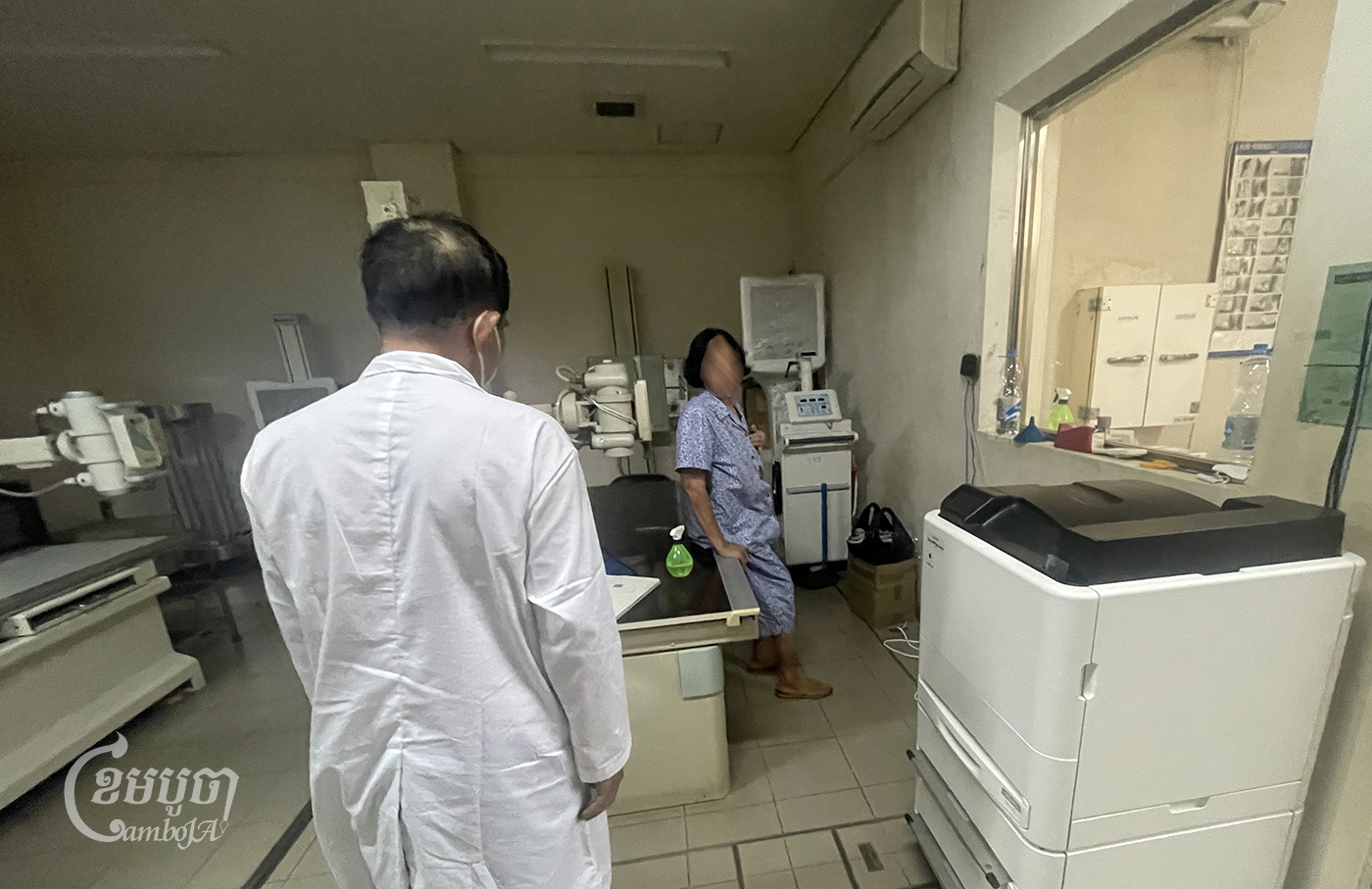
The report recommends strengthening the links between spending and performance outcomes, which will improve government accountability and efficient use of funds. The government can also promote its public health facilities and ensure equitable access to the poor to improve the health sector. In the education sector, the World Bank’s fiscal review suggests that the Cambodian government strengthen teacher recruitment and training.
“Cambodia needs to get better value from its expenditure on public services to achieve sustainable and inclusive growth in the long term,” said Maryam Salim, World Bank Country Manager for Cambodia, in a statement.
Bona said the government will consider any important recommendations in the report, and is already working to reform the law, public administration and economy. He acknowledged that the education sector and health system have limitations, adding that that is why the government is working to strengthen these sectors day by day.
“The new government is trying to reform all sectors and strengthen good governance which is the major area discussed in phase one of the Pentagonal Strategy,” he said. “To achieve this, the government has spent money to serve the people.”
He emphasized the importance of the government spending put towards Cambodian citizens affected by the Covid-19 pandemic, saying this prevented many from falling into poverty. Bona claimed that the government is using a significant amount of public spending on social services because it is not currently at war.
“Our country has peace, so we don’t spend on weapons, on war. The government spends money on helping Cambodian citizens,” he said.
Spokesperson for the Ministry of Finance and Economics Meas Soksensan said the ministry will never reject the recommendations of a partner that works with government, but the ministry will consider and adhere to those recommendations that aline with the political agenda of the current government strategy. The evaluation from all partners that work with the government will be reviewed by the ministry for the next year.
“We will consider any recommendations, but it will not be far from the government’s policies because we work with many partners,” he said.
In response to the World Bank report, executive director of the NGO Forum on Cambodia Saroeun Soeung reiterated a recent call for the government to improve accountability in its national budget and increase funding for social services.
He said in an email that the CSO Budget Working Group urges the government and National Assembly to “reduce expense on the number of staff and staff cost at the ministry level” and “increase budget for education and health sector which are the foundation for inclusive and sustainable growth.”
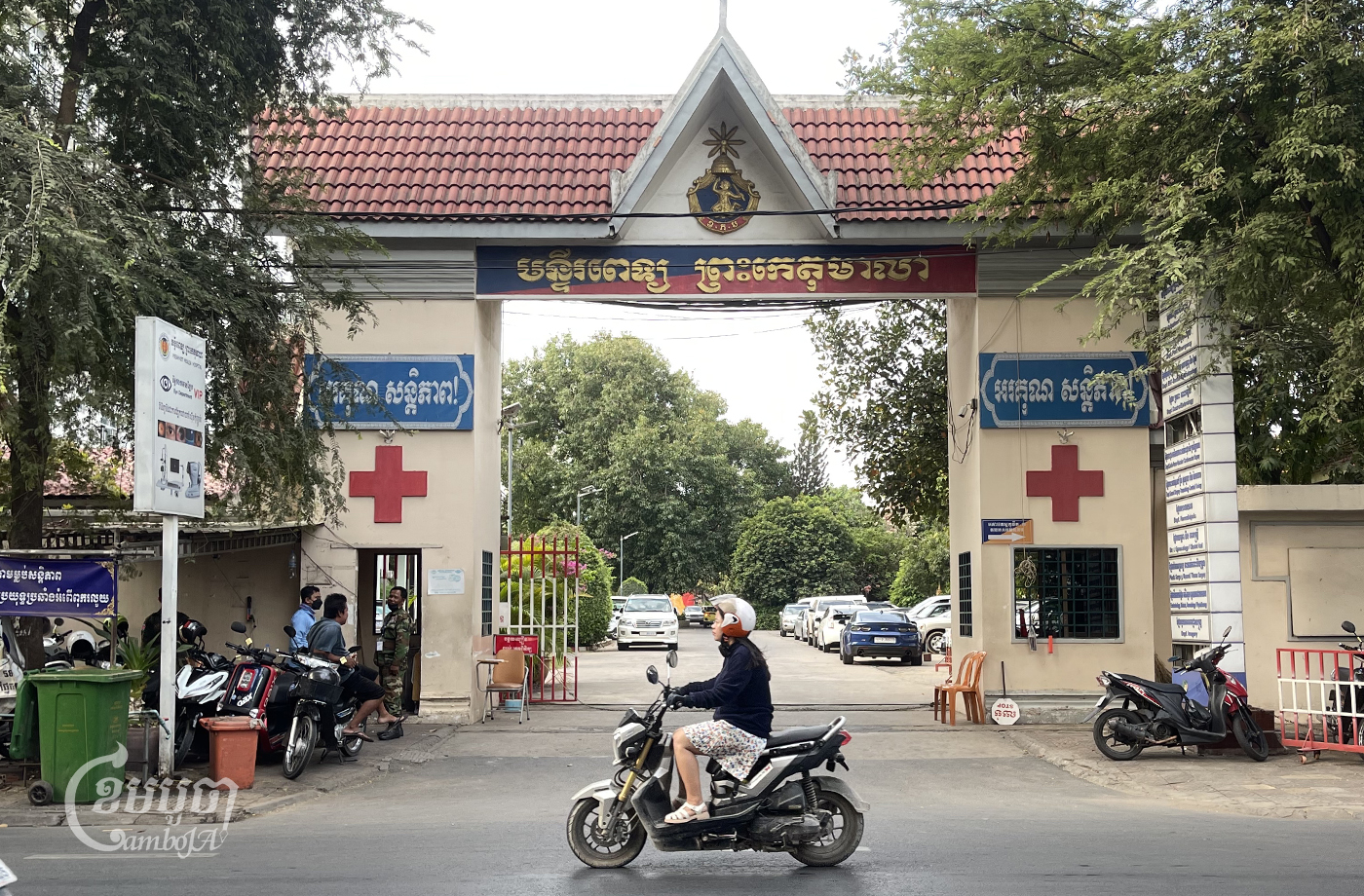
Pech Pisey, executive director of Transparency International Cambodia, said the CSO working group shares the concerns raised by the World Bank in its recent financial review. He noted that while the total state expenditure for 2024 declined from the year before, the expenditure for salary and other operation costs had increased.
“The increase reflects the government’s efforts to expand and maintain public officials both old and new officials in the new administration, which leads to an increased demands on salaries and operational expenses,” he wrote in an email.
At the same time, he said the CSO group is concerned by the decline in capital expenditure, adding that it is “urgent” for the government to increase spending on critical infrastructure.
In light of the findings and recommendations of the report, he noted that “it’s a great opportunity for the current leadership to rebuild public trust and pursue key structural reforms on rule of law, anti-corruption and eliminate key barriers of doing business in Cambodia.”


